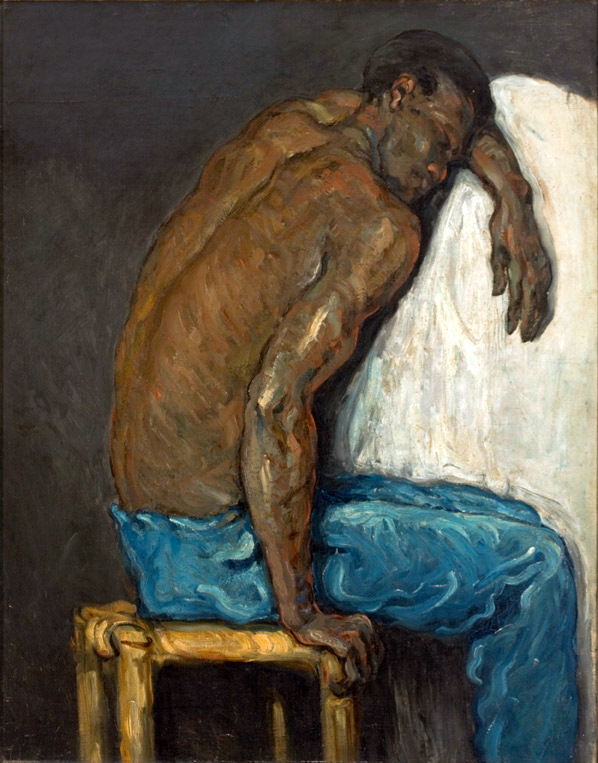
Paul Cézanne's O Negro Cipião (source:wikipedia)
Shamefully, there exists evangelicals today who still argue that slavery is biblical or justified by Christian theology, and these deplorable statements are often defended by claiming that the horrors of American Slavery were exaggerated because some slaves were treated "well" by their masters. Even if these evangelicals have "good" intentions, we must be on guard against this error, and as I once heard Jessie Jackson say "Do not let the Confederates turn back the clock" to Southern Slavery as it was.
In Risks of Faith: The Emergence of a Black Theology of Liberation, 1968-1998, James H. Cone explains why these so-called "good" masters are a myth, and in fact these "good" masters, were the worst of all slave masters in the end due to the "dehumanizing effect of mental servitude." It's an excellent quote from a book I highly recommend that directly addresses the myth of a so-called "good" master:
It has been said that not all masters were cruel, and perhaps there is some truth in the observation—particularly if it is made from a perspective that does not know the reality of the slave-experience. But from the black perspective, the phrase "good" master is like speaking of "good" racists and "good" murderers. Who in their right minds could make such nonsensical distinctions, except those who deal in historical abstractions? Certainly not the victims! Indeed, it may be argued that the so-called good masters were in fact the worst, if we consider the dehumanizing effect of mental servitude. At least those who were blatant in their physical abuse did not camouflage their savagery with Christian doctrine, and it may have been easier for black slaves to make the necessary value-distinctions so that they could regulate their lives according to black definitions. But "good" Christian masters could cover up their brutality by rationalizing it with Christian theology, making it difficult for slaves to recognize the demonic. Undoubtedly, white Christianity contributed to the phenomenon of "house niggers" (not all domestic servants were in this category), those blacks who internalized the masters' values, revealing information about insurrections planned by their brothers. The "good" master convinced them that slavery was their lot ordained by God, and it was his will for blacks to be obedient to white people. After all, Ham was cursed, and St. Paul did admonish slaves to be obedient to their masters.
Cone, James H. "Christianity and Black Power." Risks of Faith the Emergence of a Black Theology of Liberation, 1968-1998. Boston, MA: Beacon, 1999. 14-15. Print.



January 10th, 2015 - 14:01
“their lot ordained by God” — I suspect that predestinarian ideas (a false view of election) influenced the thinking here among Christian slave owners, as indeed is implied in the Ham exegesis. That would make a worthwhile study, to see if or how Dabney/Thornwell appeal to the doctrine of election for their defenses of slavery.
January 12th, 2015 - 11:07
It would be interesting to explore the history of it more. I know Charles Hodge wrote a book “slavery” that defended the institution and much of American Evangelical’s concepts of predestination come from him. I usually think of slavery being pushed as an ethical social order, including 1 Peter 2-3, etc with slaves, husbands, wives, children, etc listed as social orders.
January 12th, 2015 - 14:32
Yes, Hodge would be worth exploring too. From what I’ve read, he attempted a via media of sorts. Mark Noll’s book on the Civil War and theology should prove instructive on all of this.